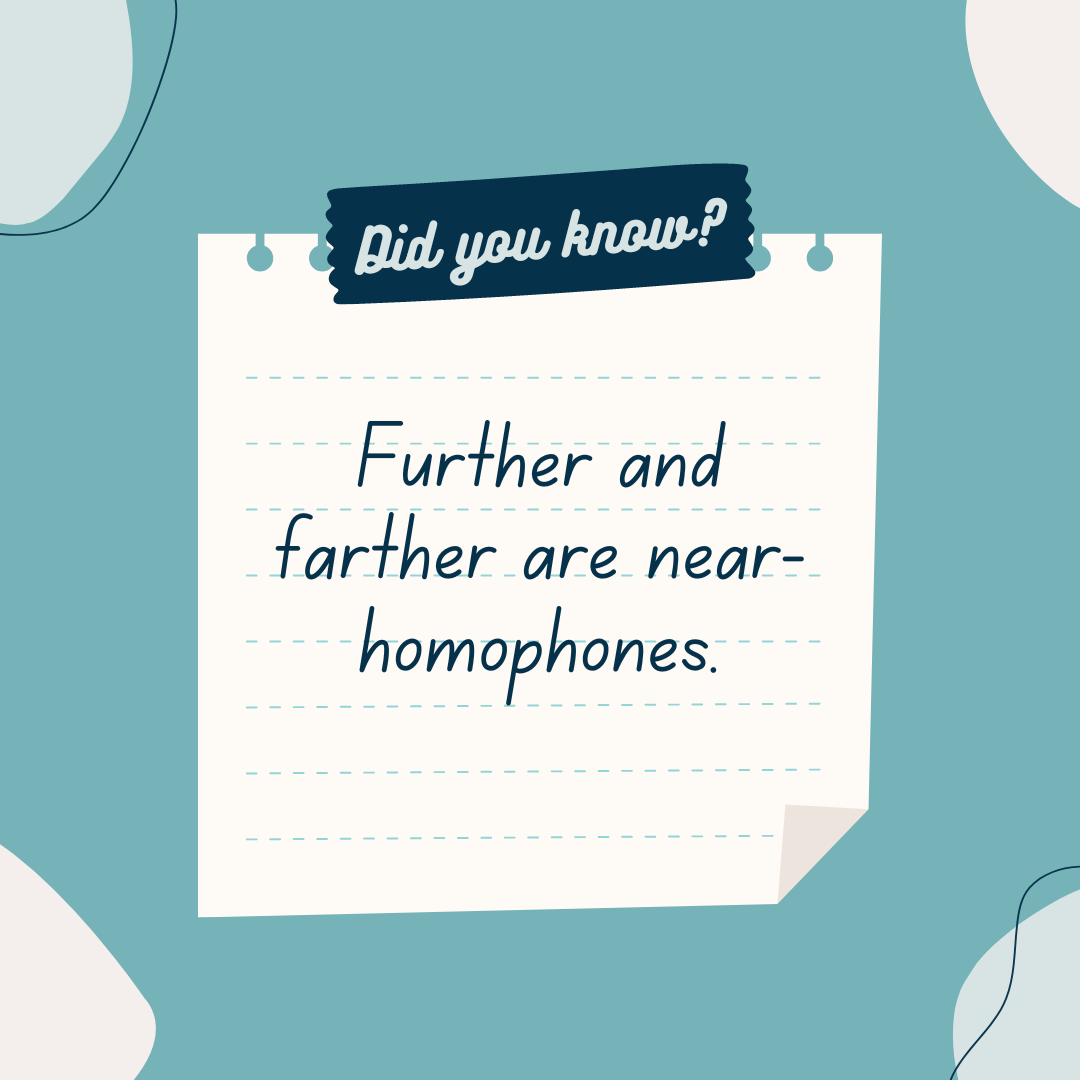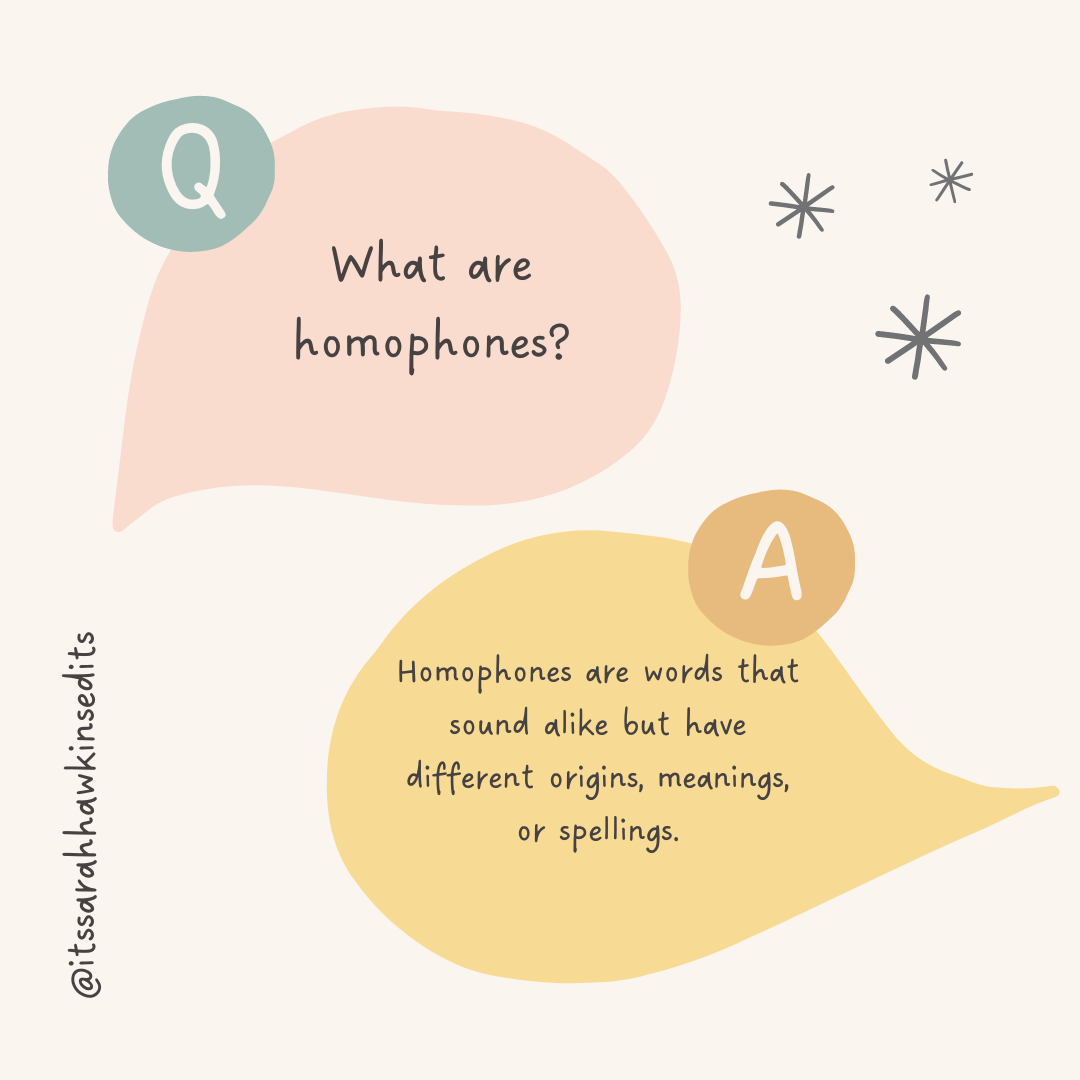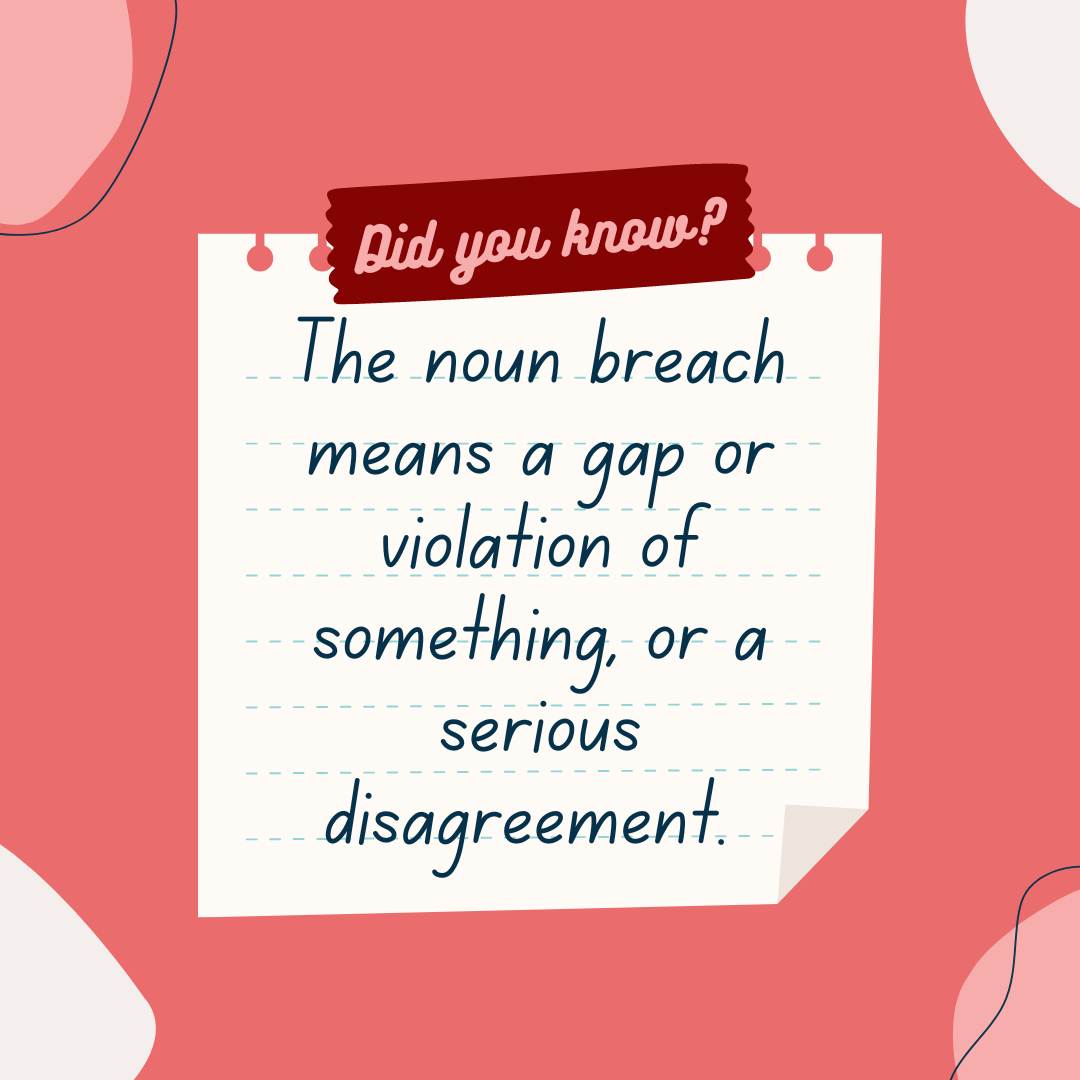What’s discussed in this post
Farther vs. furtherFarther is for literal or physical distance. She ran farther than me.
Therefore, the correct word to describe a character being “unaffected,” is unfazed. She was unfazed by his comment. Breech vs. breachAt thirty-seven weeks, the baby was in a breech position. The verb form of breach means to break open or break through. Therefore, breach is the correct homophone to use. They breached the border. Self-editing tipsWhen dealing with homophones and near-homophones, we need to look at both the words’ meanings and the context to determine which word to use. One way to do this is to highlight the word, right-click, and look up synonyms. If none of the synonyms match the meaning of the word, you're probably using the wrong homophone. However, in the case of further and farther, this way would not be reliable because the first definition of further is farther (English is so fun). So if you have MS Word, a second way to do this is to add the MerriamFetch macro. This is my favorite way to verify spelling and word choice because you can set it up with a keyboard shortcut so that Merriam-Webster is a keystroke away at all times. Here is where you can find the MerriamFetch macro by Paul Beverley. Lastly, if you know what homophones you confuse, make a reference chart! Further readingInstagram, @itssarahhawkinsedits, “Is it I have further to go or I have farther to go?”
The Chicago Manual of Style, “5.250 Good Usage versus common usage.” Editing Macros by Paul Beverley
0 Comments
Your comment will be posted after it is approved.
Leave a Reply. |
AuthorSarah Hawkins is a geek for the written word. She's an author and freelance editor who seeks to promote and uplift the authors around her. Categories
All
Archives
December 2023
|




 RSS Feed
RSS Feed
